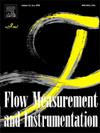电液阀低温性能试验及表面温度预测方法
IF 2.7
3区 工程技术
Q2 ENGINEERING, MECHANICAL
引用次数: 0
摘要
电液阀是船舶工业应用中必不可少的部件,其在低温条件下的可靠性能至关重要,特别是扩展到更寒冷的环境和气候变化带来更多极端天气变化。本文对船用电液遥控阀装置进行了全面的低温性能试验,包括常温试验、- 20、- 40、- 50、- 60℃低温贮存试验、- 10、- 30、- 40、- 50℃低温性能试验、内外结冰试验和除冰验证试验。在实验数据的基础上,提出了一种阀门表面温度和低温失效的预测方法。结果表明,低温会影响电液阀的工作性能,导致气密性和开关功能失效。提出的数据驱动预测方法精度高,能满足工程实际需要。为保证极地船舶在极端低温环境下的防寒能力,建立了有效的低温性能测试与预测方法。本文章由计算机程序翻译,如有差异,请以英文原文为准。
Low temperature performance testing and surface temperature prediction method for electro-hydraulic valves
Electro-hydraulic valves are essential components in marine industrial applications, and their reliable performance under low temperature conditions is crucial, especially expand to colder environments and climate change brings more extreme weather changes. This paper conducts comprehensive low-temperature performance tests on marine electro-hydraulic remote control valve devices, including room temperature tests, low-temperature storage tests at −20, −40, −50, −60 °C, low-temperature performance tests at −10, −30, −40, −50 °C, internal and external icing tests, and de-icing verification tests. Based on the experimental data, a prediction method for valve surface temperature and low-temperature failure is proposed. The results indicate that low temperature can have an impact on the working performance of electro-hydraulic valves and cause failure of airtightness and switch function. The proposed data-driven prediction method has high accuracy and can meet practical engineering needs. This paper establishes effective low-temperature performance testing and prediction methods to ensure the winterization ability of polar ships in extreme low-temperature environments.
求助全文
通过发布文献求助,成功后即可免费获取论文全文。
去求助
来源期刊

Flow Measurement and Instrumentation
工程技术-工程:机械
CiteScore
4.30
自引率
13.60%
发文量
123
审稿时长
6 months
期刊介绍:
Flow Measurement and Instrumentation is dedicated to disseminating the latest research results on all aspects of flow measurement, in both closed conduits and open channels. The design of flow measurement systems involves a wide variety of multidisciplinary activities including modelling the flow sensor, the fluid flow and the sensor/fluid interactions through the use of computation techniques; the development of advanced transducer systems and their associated signal processing and the laboratory and field assessment of the overall system under ideal and disturbed conditions.
FMI is the essential forum for critical information exchange, and contributions are particularly encouraged in the following areas of interest:
Modelling: the application of mathematical and computational modelling to the interaction of fluid dynamics with flowmeters, including flowmeter behaviour, improved flowmeter design and installation problems. Application of CAD/CAE techniques to flowmeter modelling are eligible.
Design and development: the detailed design of the flowmeter head and/or signal processing aspects of novel flowmeters. Emphasis is given to papers identifying new sensor configurations, multisensor flow measurement systems, non-intrusive flow metering techniques and the application of microelectronic techniques in smart or intelligent systems.
Calibration techniques: including descriptions of new or existing calibration facilities and techniques, calibration data from different flowmeter types, and calibration intercomparison data from different laboratories.
Installation effect data: dealing with the effects of non-ideal flow conditions on flowmeters. Papers combining a theoretical understanding of flowmeter behaviour with experimental work are particularly welcome.
 求助内容:
求助内容: 应助结果提醒方式:
应助结果提醒方式:


